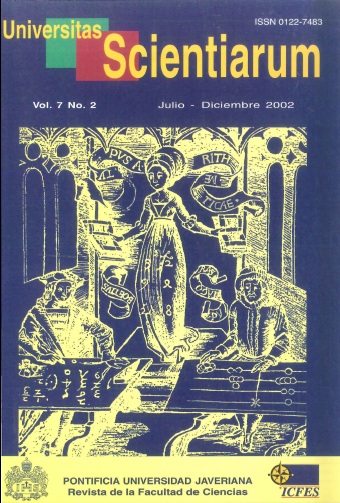RELACIÓN ENTRE EL CONSUMO DE ÁCIDOS GRASOS TRANS CONTENIDOS EN LA MARGARINA VEGETAL Y LOS NIVELES DE LÍPIDOS SANGUÍNEOS EN ESTUDIANTES Y EMPLEADOS DE LA FACULTAD DE CIENCIAS DE LA PONTIFICIA UNIVERSIDAD JAVERIANA
##plugins.themes.bootstrap3.article.details##
Abstract
The aim of this study was to describe the effect of dietary trans fatty acids from margarine on serum lipid levelsof consumers. The sample was thirty-seven subjects between 20 and 50 years and adequate weight for height; 18subjects who consume margarine daily, the study group, and 19 subjects who never consume margarine, thecontrol group. Food habits, anthropometric data and serum lipid levels were assessed. The mean daily energy andnutrients intake, as well as total cholesterol and LDL cholesterol serum levels were higher (p<0.05) for the studygroup. HDL cholesterol serum levels were lower (4 mg/dl) and triglycerides higher (40 mg/dl) for the studygroup, although not significan t. Sixty one percent of study group and 26% of control group had high total cholesterolserum levels and 50% of study group and 21% of control group had high triglyceride levels. In conclusion, forthese subjects, consumption of dietary trans fatty acids from margarine could be a factor that can increase totaland LDL cholesterollevels, which are risk factors for coronary heart disease.
Keywords
References
How to Cite
Díaz Perilla, M., & Becerra, L. F. (2013). RELACIÓN ENTRE EL CONSUMO DE ÁCIDOS GRASOS TRANS CONTENIDOS EN LA MARGARINA VEGETAL Y LOS NIVELES DE LÍPIDOS SANGUÍNEOS EN ESTUDIANTES Y EMPLEADOS DE LA FACULTAD DE CIENCIAS DE LA PONTIFICIA UNIVERSIDAD JAVERIANA. Universitas Scientiarum, 7(2), 25–32. Retrieved from https://revistas.javeriana.edu.co/index.php/scientarium/article/view/4911
Issue
Section
Health and Nutrition


